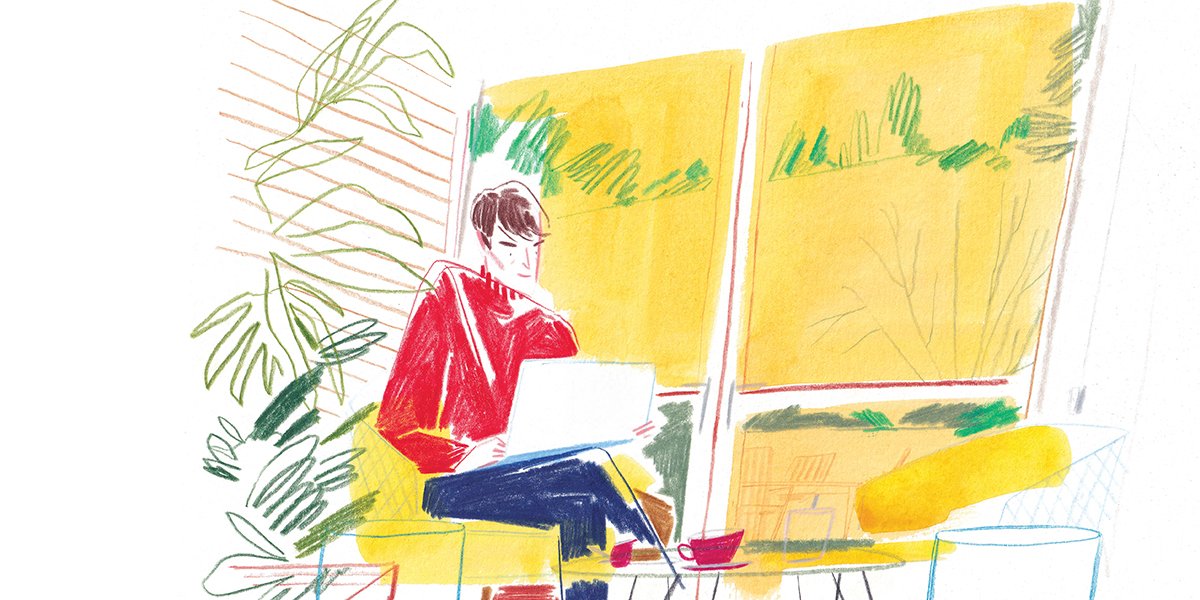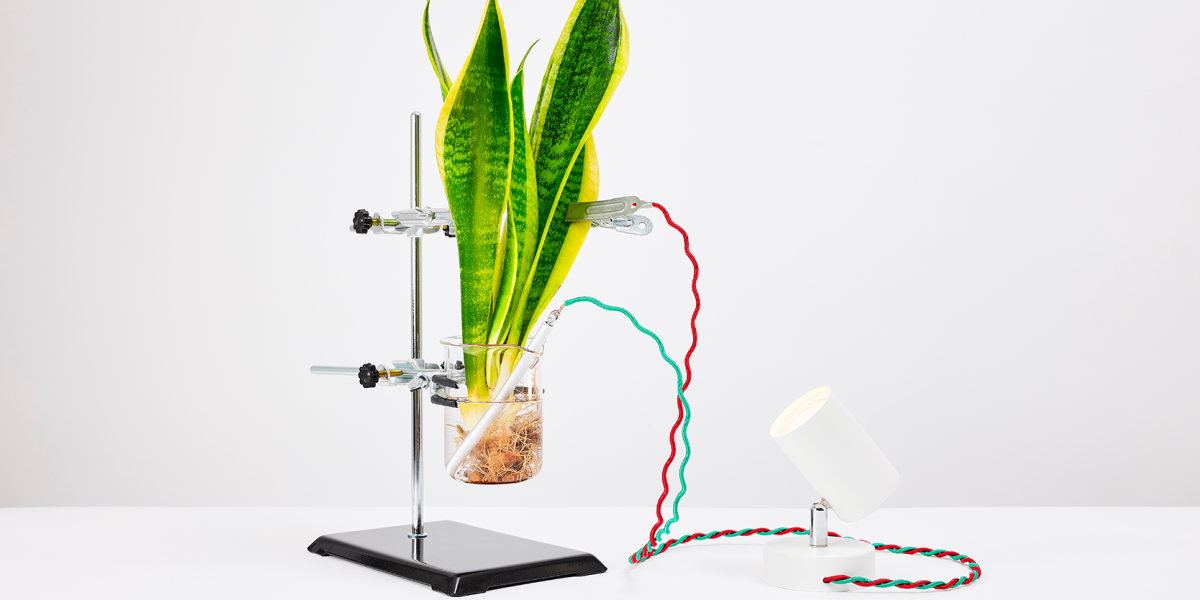Bumps
You’ll never make the Blue Boat, and Blondie and Goldie are only a dream. But you still fancy a day on the water with an oar in your hand. It’s time for messing about on the river.
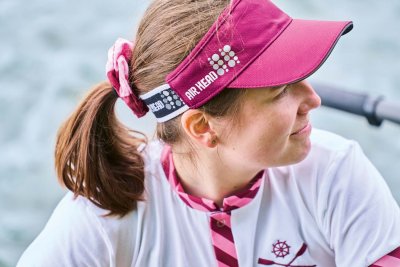
Easter Term 2001, and Alex Goldsmith (St John’s 1999), Captain of the Lower Boats, crashes through the door of the St John’s bar. “Who in here rows bow side?” he bellows. Luis (Luigi) de Guzman (St John’s 1998) only has one season of rowing under his belt. He is, he will happily admit, terrible at it. But for some reason – his deep love for his College? A romantic dream of saving the day? Too many beers? – he raises his hand. Next morning, he discovers that he is now in the fifth men’s boat for the May Bumps. “The College had too many spots in the bump order that it had to fill – or forfeit,” he remembers. “So, we were the scratch crew.”
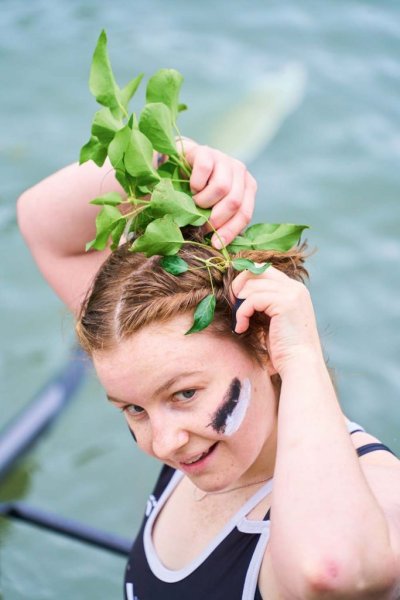
Their first practice starts inauspiciously, in an ancient clinker boat that famously must be left in the river for the boards to swell, otherwise it takes on water. The boat has not been left in the river. De Guzman’s crew make it as far as Plough Reach before rowing back, deep in bilge and gloom. “We complained to the boatman, the formidable Roger Silk. Roger, in his inimitably surly way, snapped back: “I don’t know what you’re complaining about. She was Head of the River in 1954.” The May Bumps approach: de Guzman’s valiant crew do their best. They are bumped three days in a row. The humiliation! But our heroes will not give in. And on the fourth day, their courage is rewarded… by everyone else being worse. “There was such carnage ahead of us that the marshals stopped the racing and awarded us a technical row over. We held our place on the river, and we felt like conquering heroes. It didn’t matter how terrible we were. We came around the Plough and our blades squared up and there was an enormous shout from the bank. Honestly, that was the proudest I ever was.”
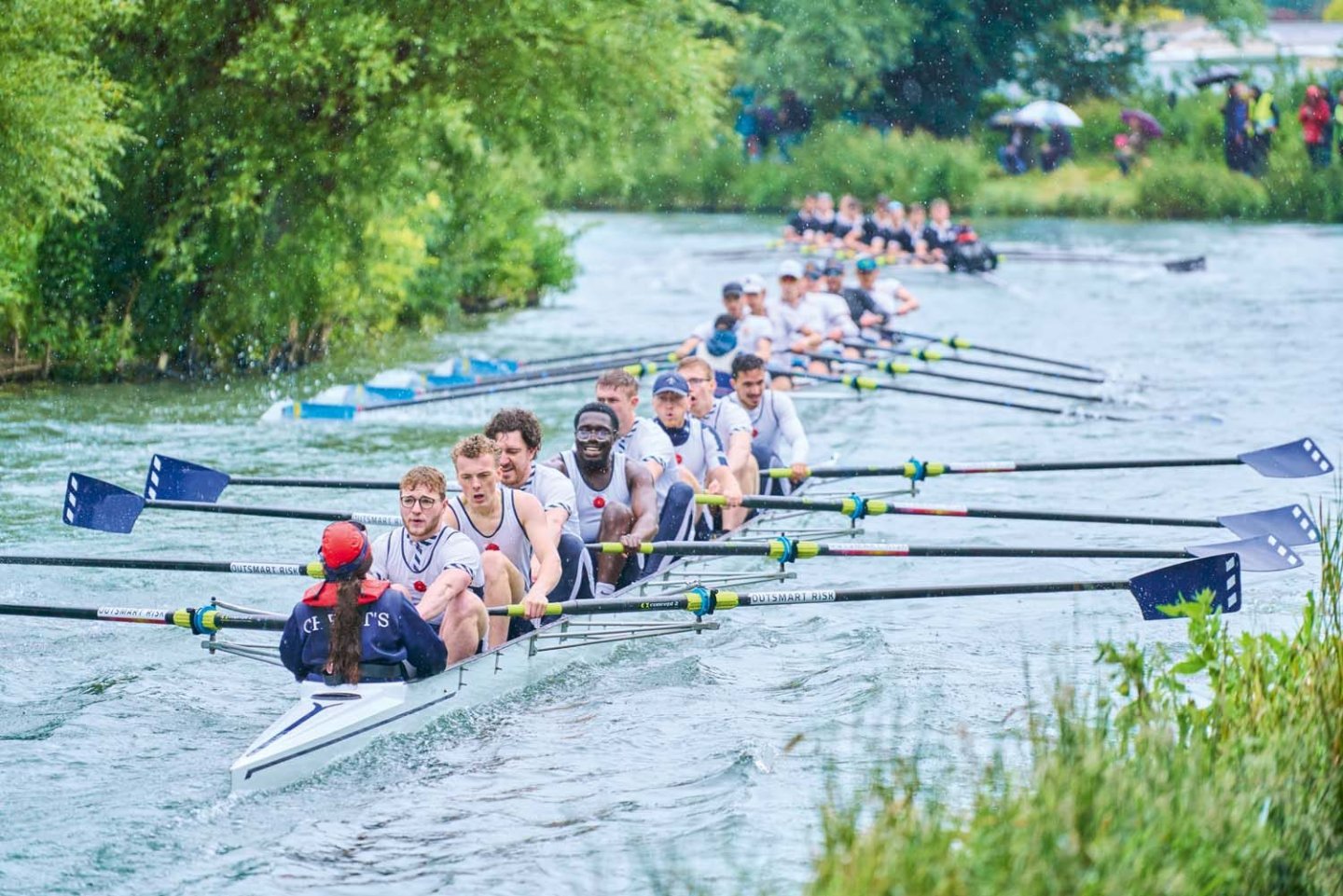
If you’ve ever rowed in the Bumps, or shouted from the bank for your College, you’ll no doubt be nodding along with de Guzman’s story. But if you don’t know your coxes from your crabs, stay with us. The Bumps – in the simplest of terms – is a rowing race where the crews aren’t side by side: there isn’t enough room on the Cam. Instead, each boat starts a certain distance apart, strung out down the river. A very small cannon goes off and each boat must now row as fast as it can. The object? To bump the boat in front of you while avoiding getting bumped yourself.
Bumping, or getting bumped, moves your boat up and down the league tables; the finishing order of the crews for one set of races forms the starting order for the next. Lent Bumps take place in Lent and May Bumps (naturally) take place in June. (There are many more rules: those interested in the finer points of administration, such as whether a boat proceeding to the start of the Bumps may spin before First Post Corner, may consult the excellent CUCBC website.)
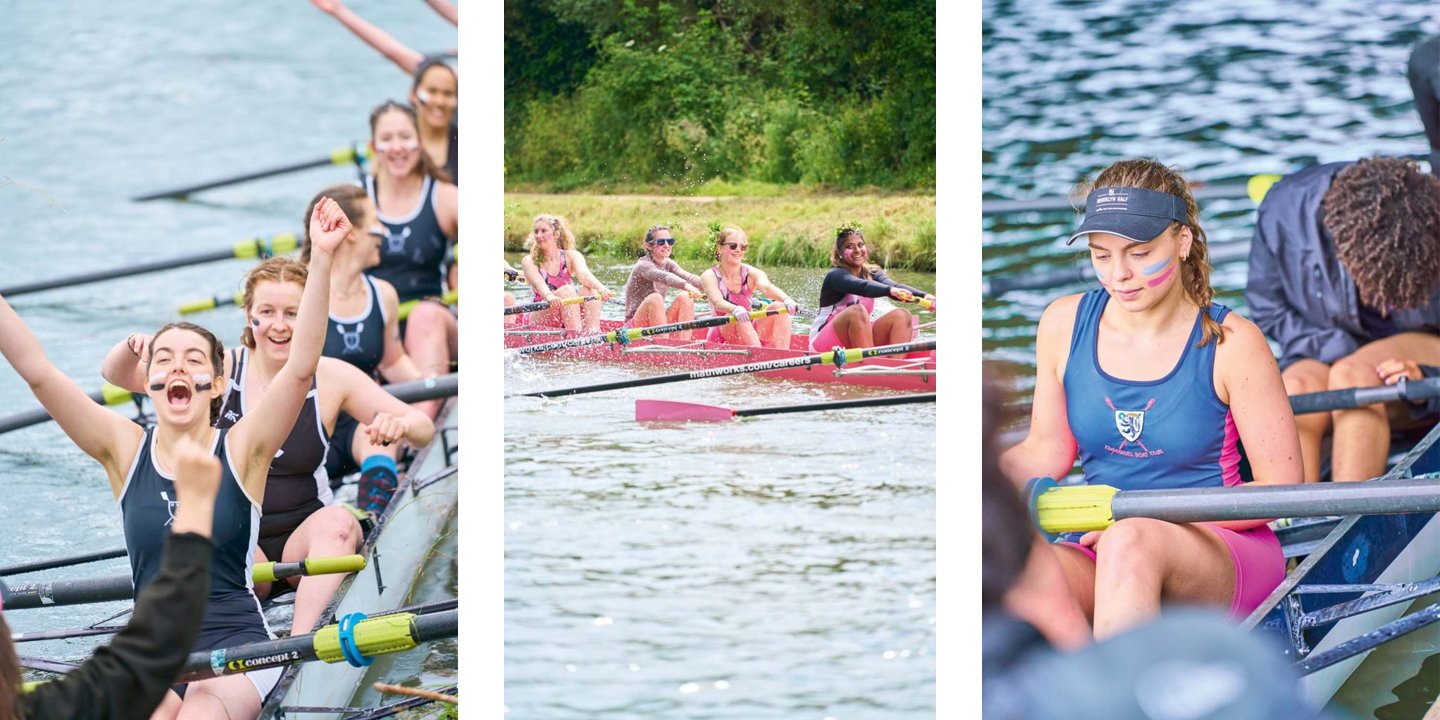
The first Bumps race took place in Lent 1827, and they’ve been going strong ever since, with only the occasional cancellation due to world wars, a global pandemic or British weather. But while it’s easy to see the reason why so many long for the glamour of being a Light Blue, the appeal of huddling in your College’s third (or fourth, or fifth) boat during a rainstorm is a little more mysterious. Why do so many people – many of whom may have never rowed in their lives before – not just take part in, but love the Bumps?
“It seemed weird, but fun,” says First Year Ellen Brewster (History, Caius), who rowed in their first Bumps this year. “I had no idea how it worked. I’d never done any rowing before but because Caius has such a renowned boathouse, I thought I’d give it a try. Bumps just kind of… happened.”

The community is so lovely, and it encompasses everyone – not just rowers, but people like me who had no idea that Bumps was a thing and had never rowed before
Brewster’s crew achieved a row over on the first day and bumped every day after that, entitling them to technical blades and a move up from Division Three to Division Two. They achieved their final bump – Magdalene – within just 13 strokes. “One of their rowers caught a crab, so they were just drifting. It felt amazing. I spent pretty much the whole week panicking about it. It’s a team sport so you don’t want to let anyone down. But as soon as it started, I was completely chill about it. Caius women’s second boat (W2) has been in Division Three since 2013, so we made history, which was very cool.”
The rowing community was a pleasant surprise for Brewster. “I was worried it might be elitist, but the community is so lovely, and it encompasses everyone – not just rowers, but people like me who had no idea that Bumps was a thing and had never rowed before. Traditions like Bumps aren’t necessarily changing, but the community and the institutions themselves are.”
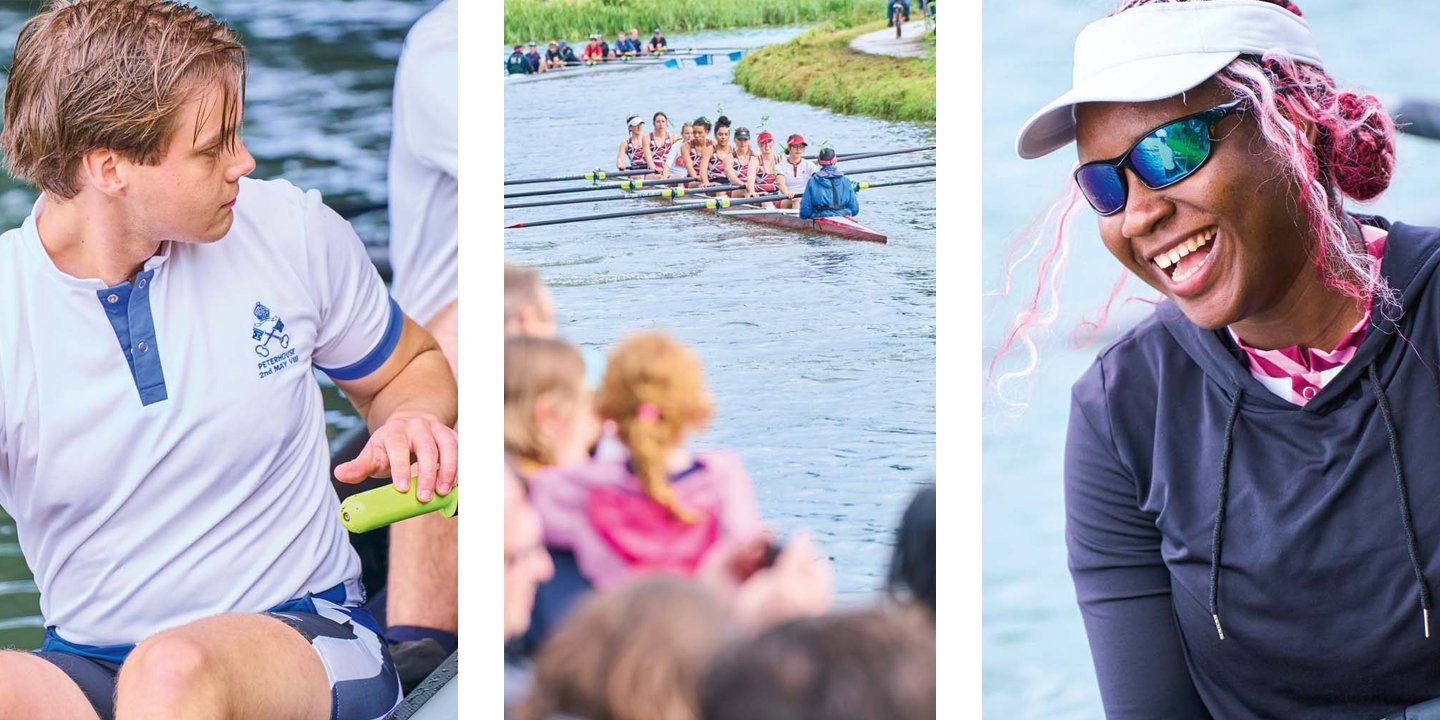
Merodie Rose (St Edmund’s 2014) also found a community at Bumps. A mature student married to a former Trinity rower, she wanted to meet people and find something to replace the outdoor activities she was used to as a New Zealander. “Rowing just seemed like the thing to do in Cambridge, and it hit the spot: I have some great friends from that time.”
Putting together an all-women team at St Edmund’s, however, proved tricky. The postgraduate college was 80 per cent male and most students were only there for a year. Although Rose was in St Edmund’s W1 – normally reserved for the very best rowers – most were novices. And it was hard work. “When I was trying to get out of bed at 5am, I’d think: ‘Why am I doing this?’” Despite a series of disasters – injury, last-minute subs, having to be sandwich-boat and row twice on the first day – they acquitted themselves well, bumping twice on the first day, rowing over on the second and third, and bumping again on the fourth. But by May, they were ready, roaring back to win their blades. “Our best bump was under the motorway bridge: some of them were pretty rapid,” Rose remembers. “I caught a crab on our practice start: I was so nervous.”
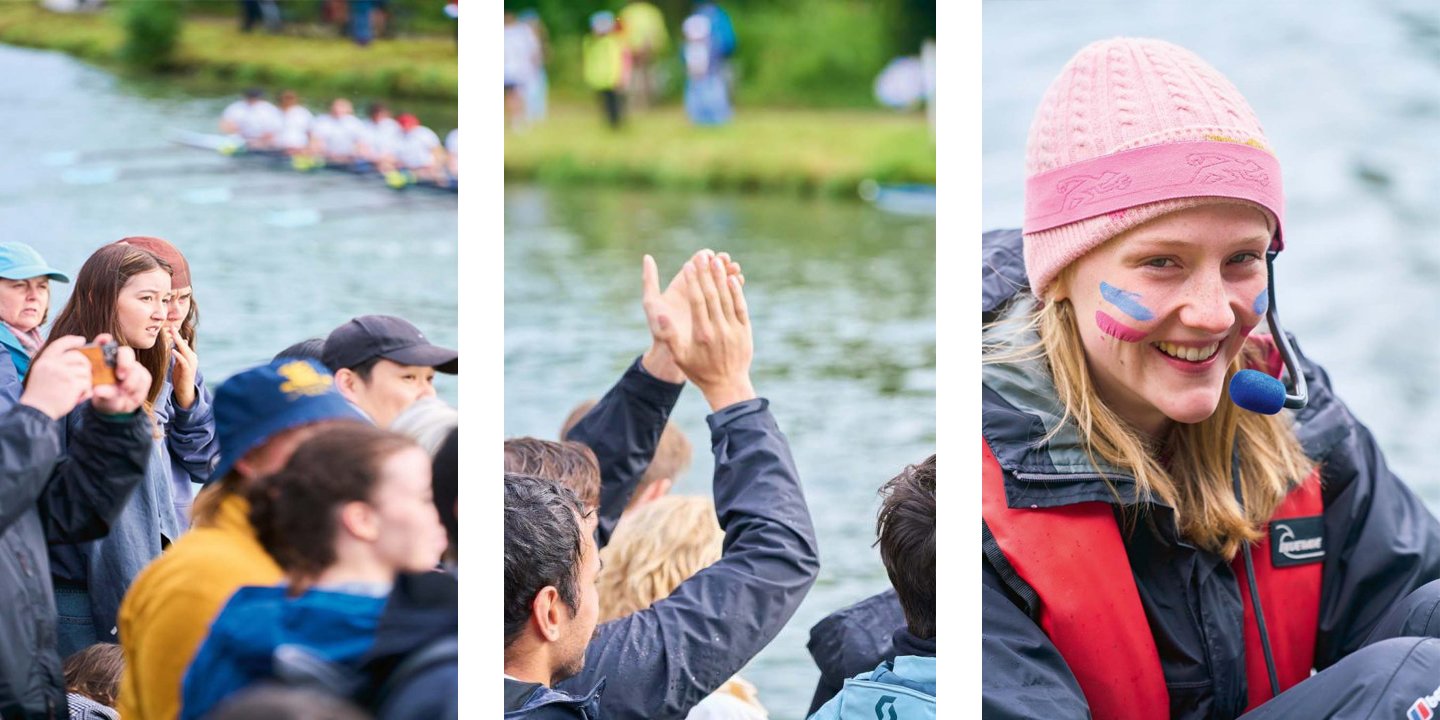
The Bumps might seem slightly mad, she says, but there’s something hugely valuable about being able to compete, even if you’ve never rowed before. “It’s a hilarious racing format and such fun to take part in – if you don’t take it too seriously. It connects people – across Colleges, within Colleges, and across disciplines. And you can win at all levels. You don’t have to be the best. St Edmund’s could never compete with some of the bigger boat clubs. But we could still win this.”
Perhaps the appeal is that, despite its egalitarian outlook, you’re still out there representing your College. George Budden (Caius 1984), the current Boat Club President, was bumped four times at Lent Bumps. “We went down four places. That was a terrible experience, and I was determined never to let it happen again.” Sure enough, in the May Bumps, they won their blades. But that was just the beginning. The next year, he moved up to the 1st Eight, coached by Dr Chris George. George’s formula for success was simple: fitness and miles on the water win races.
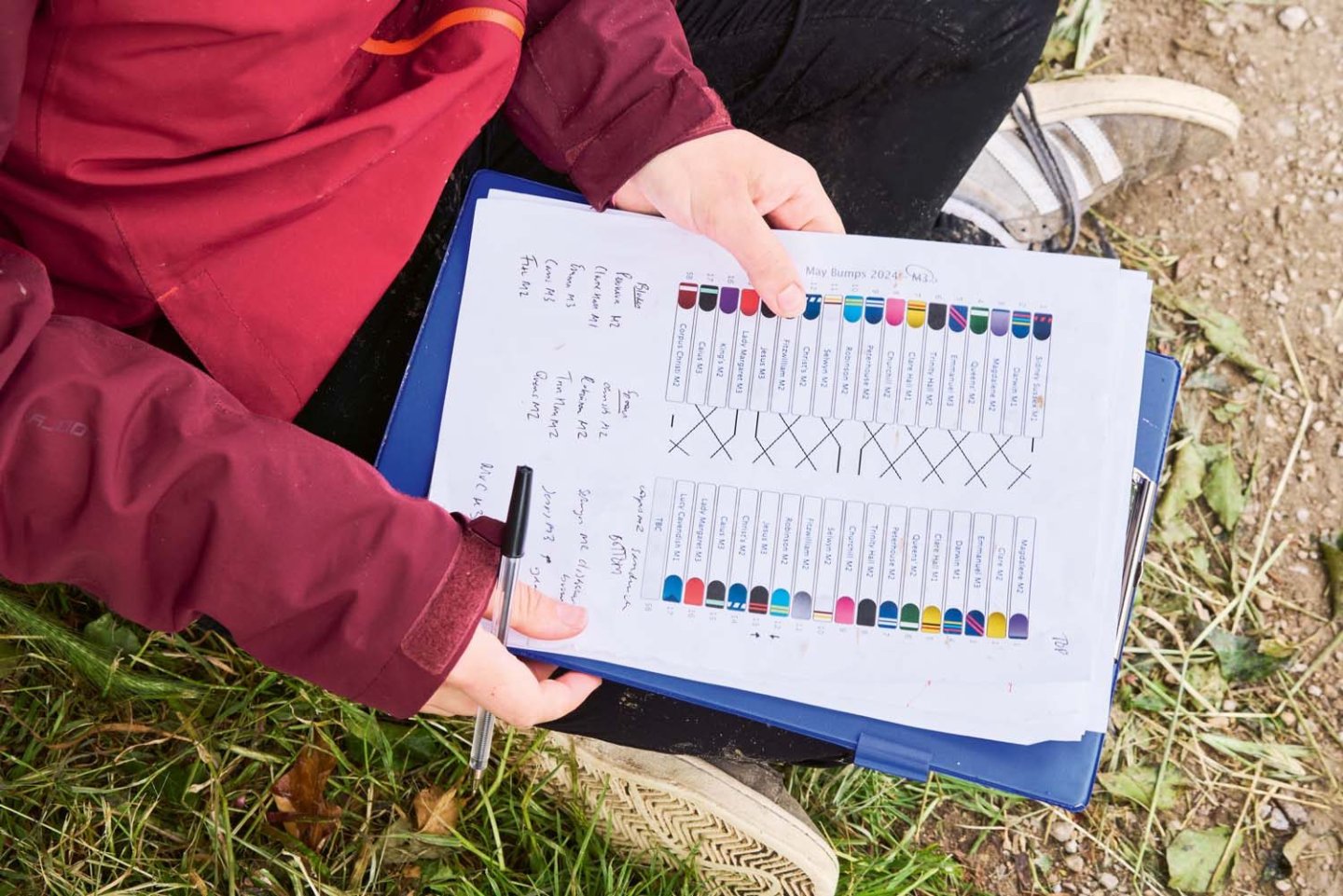
“We’d go on camps to London, stay in his house and do his decorating in lieu of rent,” remembers Budden. “And over the next two years, we bumped up to head of the Mays – though we weren’t sure how long it had been since that had happened. In 1987, there was an argument between The Times and The Telegraph about whether it was 144 or 147 years.” The secret to their success? Teamwork, says Budden. “If you’re in a football team and one person doesn’t show up, you can still play as 10 people. If you’re in a boat and one person doesn’t show up, nothing’s happening.”
You give up trying to look cool. I didn’t care how ridiculous I looked in the end. I was going to get in the boat wearing many jumpers, and that was OK
It can, admittedly, be hard to put in that work, as Sarah Williams (King’s 2006) will attest. “I was in lectures and labs and then suddenly it was a freezing cold February, and I was sat in a boat,” she remembers. “Rowing during the winter in Cambridge is a bit grim. It’s often just getting light. You’re cold, it’s 6.30am and you’re waiting at your boathouse, often in the rain. You give up trying to look cool. I didn’t care how ridiculous I looked in the end. I was going to get in the boat wearing many jumpers, and that was OK.”
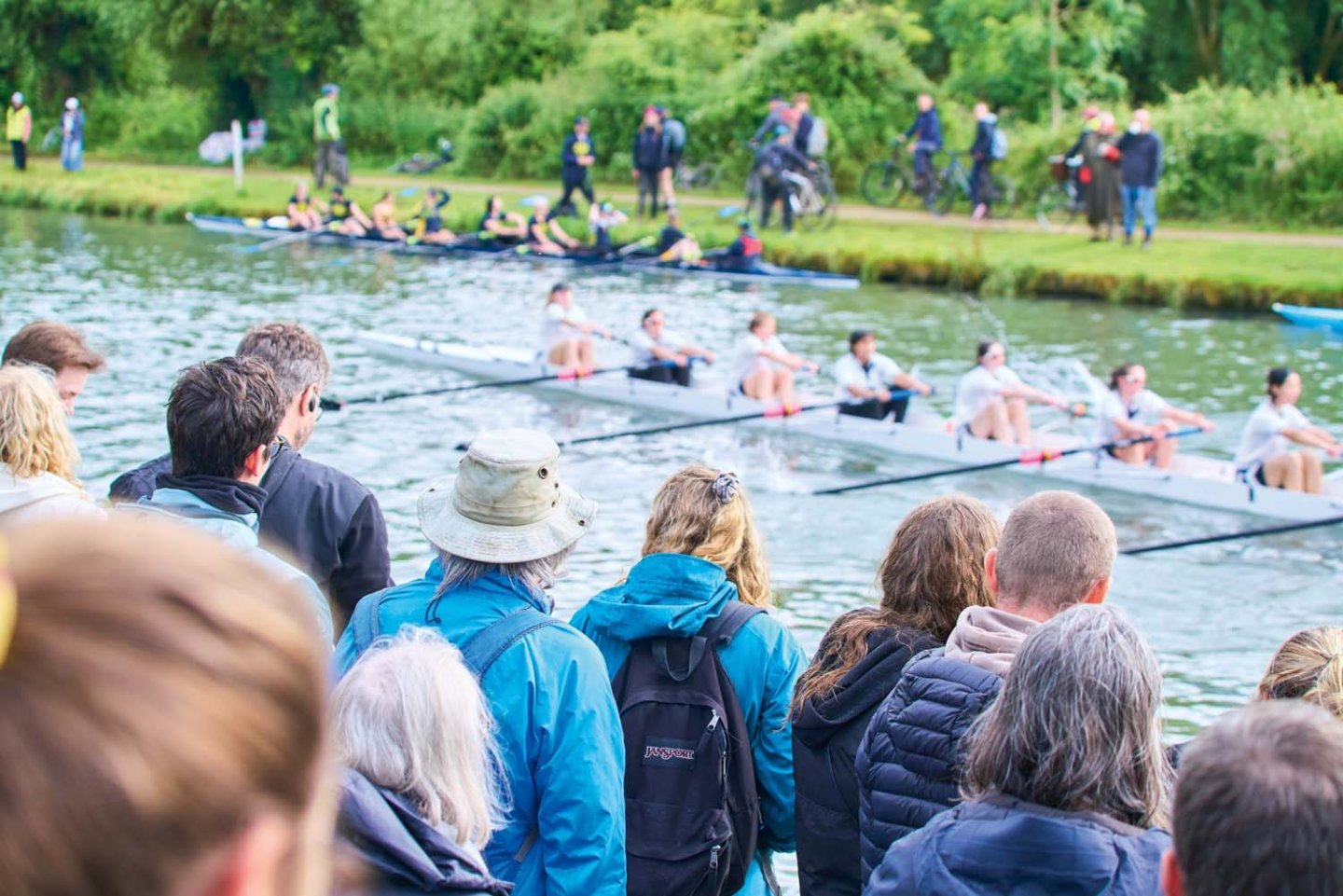
And perhaps it’s the teamwork, the camaraderie, the esprit de corps, that makes Bumps such an odd and special experience. Oscar Wilson (King’s 2019), former King’s Boat Club Captain, was in King’s M1 last year. “We bumped Peterhouse, then Pembroke on the third day, and Emmanuel on day four. We had our blades! And when we bumped Emmanuel, the atmosphere just went crazy. Everyone was so excited. We weren’t Head of the River but we were fourth – the highest King’s M1 had ever been on the river.”
Yet alongside the excitement of the race itself, it’s the moments of stillness that stay with Wilson: “We’d put loads of garlic bread in the oven to eat while we were cooking tortellini and sit around outside on the terrace or in front of the Chapel if it was warm. We’d watch old Bumps videos on YouTube and talk about how the day’s racing had gone, and make plans for the next.
“It was one of those times when you want life to be like that for ever. You know it can’t be. But for those short weeks, it feels very special.”
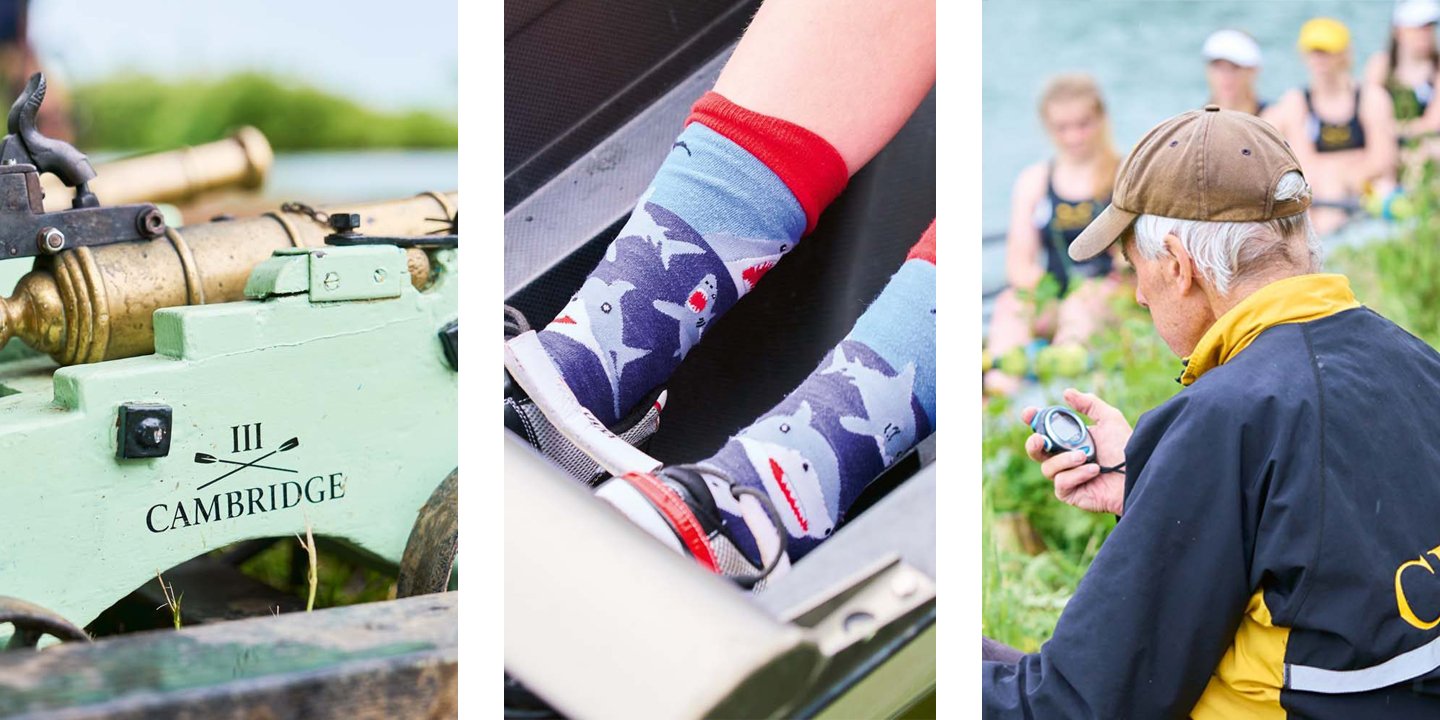
A Bumps glossary in terrible verse
If your boat or oar or crew
Touches the boat in front of you
Then hurrah! A BUMP is given!
Off you go to rowing heaven.
And don’t forget, with joyful thanks
To WEAR THE WILLOW from the banks
Festoon your team with leaves divine
But not too many. (You’ll get a fine.)
Bump every day and you’ll parade
A lovely painted oar – a BLADE!
(Or rise four places and – hooray –
A TECHNICAL BLADE will come your way.)
If you don’t bump or get bumped at all
“A ROW OVER!” the ref will bawl
But watch your oar doesn’t get stuck
You’ll CATCH A CRAB and lose your luck.
Reached your division’s very top?
Your SANDWICH BOAT cannot now stop
You’ll row again – such indisposition –
At the bottom of the higher division.
And if to Division One’s heights you rise
HEAD OF THE RIVER will be your prize.
Off you go to drink and cheer
And contemplate doing it all again next year.
 CAM
CAM